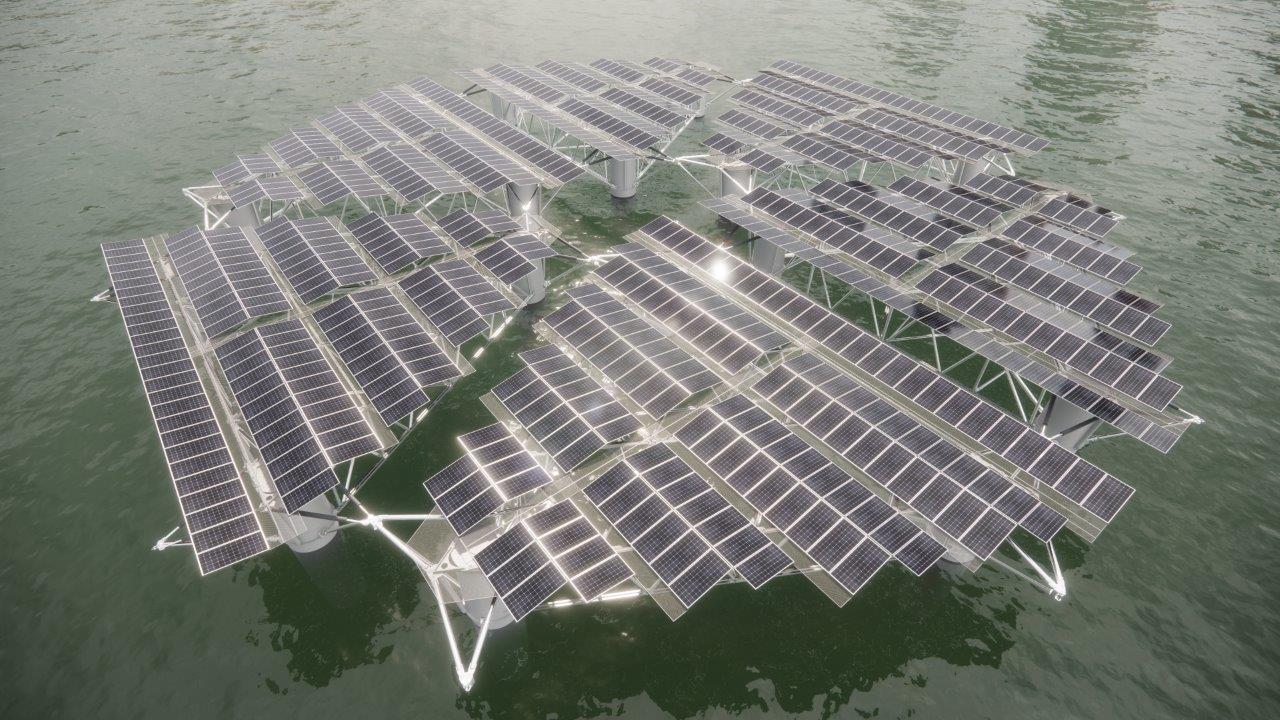Dynamics of a full-height lattice support structure for nextgeneration offshore wind turbines
Marco Vergassola
Fundig program: RVO - DEI+
Budget: 7.8 MEUR / 596 kEUR (Consortia / TU Delft Offshore Engineering contribution)
Climate change and environmental degradation are a major challenge for the Netherlands and its energy supply. The transition to sustainable energy must be accelerated and scaled up to complete the energy transition. The main limitation in the Netherlands is the availability of suitable space, which is greatly enhanced by the limited energy density of renewable energy projects compared to conventional technologies based on fossil fuels. However, the North Sea (offshore) has an enormous amount of available space, also between the wind turbines. This makes Offshore Floating Solar (OFS), with a high energy density, extremely suitable for large-scale roll-out.
Goal of the project: OFS can be the solution for making the Netherlands more sustainable and reducing CO2 emissions. This project should provide more insight into the possibilities for generating solar energy offshore and the integration of offshore solar energy within OFW sites in the North Sea. The main objective of the project is: “Developing, testing and validating the Merganser, an offshore solar pilot installation consisting of 13 linked platforms with a total capacity of 500 KWp, under offshore (North Sea) weather conditions.” The consortium, consisting of SolarDuck, TNO, MARIN, Deltares, TU Delft – Offshore Engineering and TU Delft – 3ME, wants to use this pilot project to gain more insight into the suitability of the technology to function under extreme offshore conditions.

Fundig program: NWO - ENW-XS
Budget: 50 kEUR
In the pursuit of the transition towards renewable energies, ocean wave energy is one of the renewable energy sources with greatest potential. However, there is the need of fundamental scientific research to enable ground-breaking ways to harvest energy from ocean waves more efficiently. In this project we will focus on a new disruptive paradigm: flexible wave energy converters, which have the potential to be more resilient, cheaper and efficient than traditional wave energy converters. In particular, we will study their hydro-electro-elastic behaviour by developing a novel numerical model able to characterize floating thin elastic structures with embedded energy converters.
The COMFUS project "COMputational techniques for FUSion reaction" is a Starting Independent Research Grant awarded to Prof. Santiago Badia funded by the European Research Council and is the main financial support of the LSSC group. The objective of the project is the development of advanced finite element techniques and large scale implicit solvers for a unified numerical approximation of physical phenomena in fusion reactors.
More info: LSSC group webpage and FEMPAR webpage
Not available
Marco Vergassola